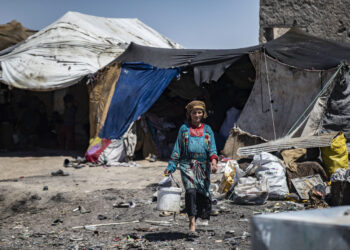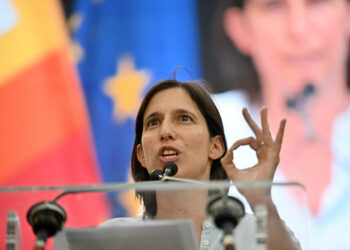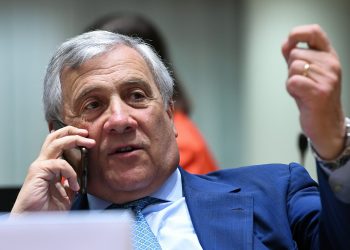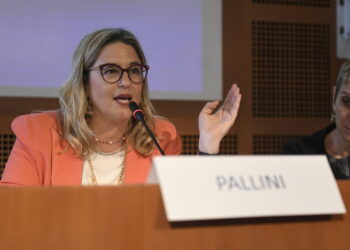Brussels – “Helping create the much-desired European public sphere” is one of the goals set by the General Council of Italians Abroad (CGIE), which convened the Continental Europe and North Africa Commission in Brussels.
The three-day event will discuss key issues involving all Italian citizens living abroad. One of the reflections will deal with the topic of the round of elections for the renewal of the European Parliament, which has caused people to reflect on the critical points of voting abroad, in addition to the topic of recognition of citizenship. No less important is the topic of consular services and the integration of the Italian community residing in Belgium, with the launch of the ‘Europe on the Move’ track. The ultimate goal is to create a joint European agency to deal with the issue.
The Ambassador of Italy to Belgium, Federica Favi, and MEPs Carlo Fidanza (ECR), Alessandra Moretti (S&D), Paolo Borchia (PfE), and Salvatore De Meo (EPP) were invited to attend the opening of the event.
In his opening remarks, CGIE deputy secretary-general Giuseppe Stabile, in his opening speech, reminded of the difficulties related to the European elections and stressed the lack of a centralized procedure in Europe. “The analysis of the recent round of elections for the renewal of the European Parliament highlighted a series of critical issues,” Stabile recalled. Citizens of member states also abroad have the right to vote, with the same guarantees as citizens of the host state. However, “the notion of residence still varies too much from one member state to another,” Stabile said.
“It is essential to strengthen the perception of being a European citizen and to develop more active citizenship and civic skills,” the deputy secretary concluded, starting with the awareness of being part of “one big European family.”
“At this moment in history, in Belgium, we are also witnessing a well-known migration phenomenon, one that sees a large number of compatriots arriving and contributing to a community with an extremely diverse social and demographic composition,” the Ambassador of Italy to Belgium Federica Favi said. She recalled the importance of the CGIE to represent the interests of Italians abroad and its support for the joint work of MEPs with Italian officials in institutions. She relayed a message from the Italian Vice President and Minister of Foreign Affairs and International Cooperation, Antonio Tajani, in which he recalled his connection with the CGIE and his intent to strengthen “the enhancement of the Italian language and culture.” He also recalled the CGIE’s great support to realize the Root Tourism initiative “dedicated to Italians abroad and Italian descendants eager to reconnect with their origins.”
The MEPs present agreed on the importance of meeting in Brussels to talk about issues dear to Italians abroad. Moretti noted the symbolic relevance of meeting at the European Parliament, which “is the home of European citizens.” According to Moretti, the synergy among MEPs is fundamental to “give meaning to the very concept of European citizenship and to foster mobility rights.” He criticized the institutional reform of the premiership, considering it “dangerous,” posing problems for Italians abroad in the direct election of the head of state.
“We are at the beginning of a very exciting European legislature,” Fidanza said. In his case, the first focus is on North Africa, for which the Mattei Plan was launched: “a new partnership with the nations of the African continent, with a new approach that is not predatory, but one of cooperation and collaboration,” mutually beneficial. He added that Italian heritage has great value, which should be “further enhanced.” Borchia raised the issue of a necessary generational change in relation to the world of associations, noting a growing disengagement by young people. The reflection on the “adjustment of the financial resources made available by our consular apparatus” is complex, as it should be reformed like the voting system abroad.
De Meo closes the round of MEPs present: the system of representation of Italians abroad is insufficient, so changes are needed, and the CGIE can play an important role by coming between national institutions and foreign communities. He stresses the need to accommodate the demands of European institutions, so “today’s appointment must be the first of a long series” to “create those conditions that will give the effective tools to be able to guarantee that great strength that Italians abroad represent.”
The meeting that took place today will be followed by two more appointments in the following days, during which Council members will discuss the issues that impact the lives of Italian expatriates, aiming to propose common solutions.
English version by the Translation Service of Withub


![Interno dell'Europa building, sede del Consiglio europeo dove si riuniscono i leader [archivio]](https://www.eunews.it/wp-content/uploads/2020/09/europa_building-council.jpg)






